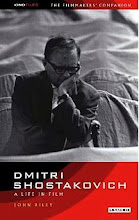 At home there’s only one contender – the Bronze Horseman in Decembrists’ Square. Unveiled in 1782, it had been commissioned by Catherine the Great with a dedication to her predecessor Peter. But the ambiguity of the phrase "From Catherine II to Peter the Great" meant that it wasn't simply a metaphorical gift, but a statement of linearity which, given Catherine's somewhat tenuous claim to the throne was an astonishing piece of chutzpah.
At home there’s only one contender – the Bronze Horseman in Decembrists’ Square. Unveiled in 1782, it had been commissioned by Catherine the Great with a dedication to her predecessor Peter. But the ambiguity of the phrase "From Catherine II to Peter the Great" meant that it wasn't simply a metaphorical gift, but a statement of linearity which, given Catherine's somewhat tenuous claim to the throne was an astonishing piece of chutzpah.Be that as it may, it was soon taken to the city's heart and in 1833 Pushkin was inspired to write his ghoulish story about the statue's retribution on a man who cursed Peter's decision to build the city on a swamp. As an aside it's interesting that three years earlier he'd written The Stone Guest, a take on Don Giovanni that also climaxes with a statue coming to life. Though The Bronze Horseman (read it here) seems quite ambivalent about the city it was hailed as a masterpiece and became very popular (possibly for its embedded anti-Polish sentiments) so that its title (actually, literally The Copper Horseman [Медный всадник] was then retrofitted to the statue.

 It's worth pointing to a couple of paintings: Vasily Surikov's benign view [left] and, more famous, Benois' illustrations for a 1904 edition of Pushkin's poem. Pushkin and/or Benois also inspired composers Glière and Myaskovsky but I'll leave them for another post.
It's worth pointing to a couple of paintings: Vasily Surikov's benign view [left] and, more famous, Benois' illustrations for a 1904 edition of Pushkin's poem. Pushkin and/or Benois also inspired composers Glière and Myaskovsky but I'll leave them for another post. Because of the myth that the city would stand as long as the statue, during the Siege of Leningrad it was – perhaps superstitiously - completely covered with sandbags. In much the same way, Britain only survives because the ravens at the Tower of London have their wings clipped.
I'll finish by mentioning a film appearance: Chiaureli’s jaw-dropping 1950 Stalin hagiography The Unforgettable Year 1919 (Незабываемый 1919 год). To the marvelously inappropriate accompaniment of Shostakovich’s Attack on the Red Hill – a miniature Rachmaninovian piano concertino (previously mistranslated as Assault on the Beautiful City of Gorky), Stalin, like a night-watchman, patrols the city, pausing only to strike a pose in front of the statue: as Peter had founded the city, so Stalin would defend it.

Actually Chiaureli wisely allows Stalin a couple of seconds of noble profile on his own before cutting to the money shot. After that, we catch up with some soldiers and, as their patrol is brought to a halt Shostakovich’s music is unceremoniously faded down.
Chiaureli’s need for, and appreciation of, music certainly seemed to come and go: perhaps he had difficulty in deciding what he wanted – or in explaining it to the benighted composer. Certainly 1919 and his previous collaboration with Shostakovich – the notorious The Fall of Berlin (1950) – feature some of the most ham-fisted music-editing ever to besmirch a film. I wonder if the shocking edits and fades up and down were a slap in the face or helped the composer cope with being forced to do such work.


 or Sergei Yutkevich who, after his early wildness, interleaved most workaday productions with under-the-radar criticisms. They've chosen his last film,
or Sergei Yutkevich who, after his early wildness, interleaved most workaday productions with under-the-radar criticisms. They've chosen his last film, 
 Sofiko C and Georgi S married, the two dynasties were linked and had a massive impact on Soviet cinema, with a welter of relations, including their director-son, another Nikoloz. Andzhaparidze was also aunt to Georgi Daneliya, linking to another whole strand. I tried working out a family tree but ran out of paper. Apart from returning to the Stalin myth,
Sofiko C and Georgi S married, the two dynasties were linked and had a massive impact on Soviet cinema, with a welter of relations, including their director-son, another Nikoloz. Andzhaparidze was also aunt to Georgi Daneliya, linking to another whole strand. I tried working out a family tree but ran out of paper. Apart from returning to the Stalin myth, 